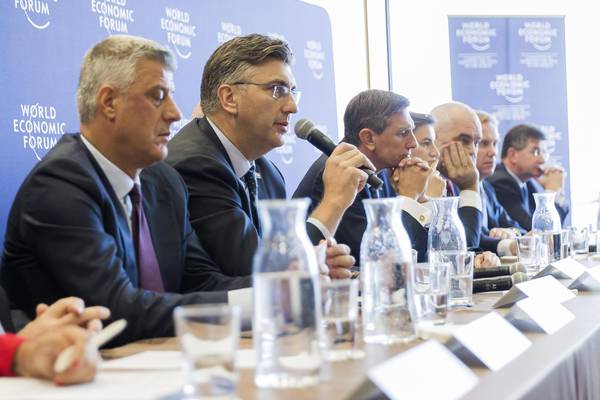Balkans: World Bank, growth up in 2018 but still fragile
Public investment boosts economies, reforms needed
04 October, 19:03The report reveals that, in most of the region, growth estimations for 2018 have been revised upward: Kosovo and Albania will grow 4% this year, from 3.7 and 3.8% respectively in 2017; Montenegro 3.8% (from 4.3% in 2017), Serbia 3.5% (from 1.9% in 2017), Bosnia and Herzegovina 3.2% (from 3% in 2017) and Macedonia 2.5% (zero growth in 2017).
According to the World Bank, the economic growth in the Western Balkans will maintain the current pace in 2019 as well, with Kosovo projected to registered a 4.5% growth, Albania 3.6%, Serbia 3.5%, Bosnia and Herzegovina 3.4%, Macedonia 2.9%, Montenegro 2.8%.
The growth is projected to accelerate in the region to 3.8% in 2020, with Kosovo again leading with 4.5%, followed by Serbia (4%), Bosnia and Herzegovina (3.9%), Albania (3.5%), Macedonia (3.2%), Montenegro (2.5%). In 2018, "growth was stimulated by higher public investment and consumption," the World Bank said. However, the WB added that "high and rising public debt is coupled with fiscal and external imbalances, making the outlook vulnerable to an increase in financing costs should financial markets tighten." The Bank asked for "domestic reforms that unleash private investment and exports" to sustain a long-term and less fragile growth and for "greater economic integration" between the economies in the region.
More than 90,000 jobs were created in the Western Balkans between July 2017 and July 2018, mostly in industry and services, "significantly fewer than the 214,000 added one year earlier," the Bank stressed. (ANSA).














